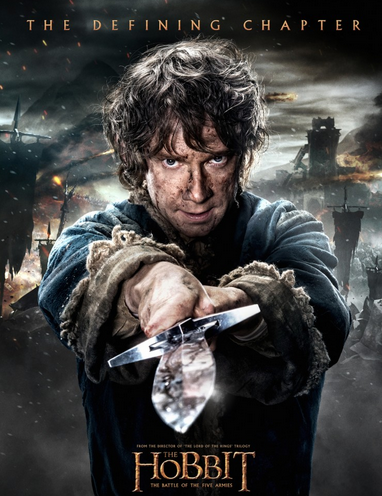The Hobbit 3 Review

The epic conclusion to the undeniably over-extended storyline The Hobbit may have premiered over three weeks ago, but like the movie series itself, it is likely to last longer than necessary.
As cynical as I sound, I must confess, I have enjoyed The Hobbit series, and looked forward to seeing The Battle of the Five Armies. In many ways, it satisfied my expectations. In other ways, it did not.
I, for one, found myself resolved again and again to root for Bilbo Baggins as a person (or, hobbit) with more fervor than I had for his nephew, Frodo Baggins. Martin Freeman did a wonderful job portraying Bilbo as an immensely clever, undoubtedly pure in conscience, and inevitably human character. He is decisive, brave, and self-sufficient, something Frodo lacked in The Lord of the Rings installment. I found his portrayal charmingly believable and wished there had been more time to develop his character. Of course, that was not the movie’s main purpose.
As the title implies, the movie itself was basically a prolonged, three-hour fight scene between various mythical forces of good, evil, and somewhere in between. The action was everything one may expect from a Peter Jackson epic; essentially, it was a reprise of the epic conclusion in The Lord of the Rings, but with much less of an impact on the story as a whole. In fact, the dwarves’ whole story was practically unrelated; however, that did not make it bad.
In my opinion, focusing more on the characterization would have been beneficial to the prequel series because it would have helped to provide more backstory to The Lord of the Rings. However, looking at it as a standalone movie series, it did its job well. Was it true to the book? Perhaps not. But then again, neither was The Lord of the Rings trilogy. The Hobbit trilogy did a satisfactory job of living the legacy (or, perhaps, beginning the legacy) of its predecessors (or, perhaps, descendants) while still producing a note of its own.

